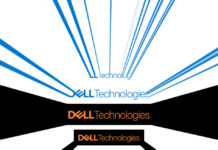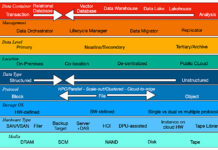Oxide Computer Company ships on-premises hyperscale “cloud computers.” These machines are aimed at the government, financial services, e-commerce, and service provider markets, for example, and the firm says it is making progress in establishing a niche.
Blocks & Files met the company at its headquarters near Oakland, California, on the recent IT Press Tour of data management companies. Oxide’s mission is to revolutionize the private datacenter industry by offering a unique solution that combines the efficiency and scalability of cloud computing, with the security and control of on-premises infrastructure.
We have featured Oxide before, and it has so far raised $94 million in three rounds from Eclipse Ventures. It constructs “commercial cloud computers” specifically for private datacenters, which offer cloud-scale performance and utilize cloud-style racks for on-premises computing systems.
Oxide machines combine compute, storage, and networking elements as sleds in a plug-and-play rack. They also include the open source software needed to build, run, and operate a cloud-like infrastructure on-site.
We learned that Oxide has so far shipped “under 20 racks,” which illustrates the selective markets its powerful systems are aimed at.

B&F understands most of those systems were deployed as single units at customer sites. Therefore, Oxide hopes these and new customers will scale up their operations in response to positive outcomes.
“We aim to get racks shipped to new customers every new quarter,” Oxide CEO and co-founder Steve Tuck told us.
One existing Oxide user is e-commerce giant Shopify, which indicates the growth potential for the systems available. The headquarters of Disney’s Pixar are also just down the road from Oxide, and it is believed that demanding data processing environment is on Oxide’s radar too.
Tuck said there is no “OEM story” for its systems, with the firm choosing to sell direct. He said: “We choose who we ship to. We want to avoid too many firmware issues.” He noted this issue arises from technological mismatches in customer environments.
Therefore, choosing the right customers is really important to the company. Tuck said customers “have to see the business value” of the solution, and be “cloud educated.” He added that it’s “positive” if the development/platform engineering team turn up in sales discussions.
“This isn’t really about replacing servers for something better, it’s about addressing strategic demands. Does the customer really want to move to a cloud native infrastructure?”
If an organization buys into such a vision, Oxide may well be a supplier worth looking at.








